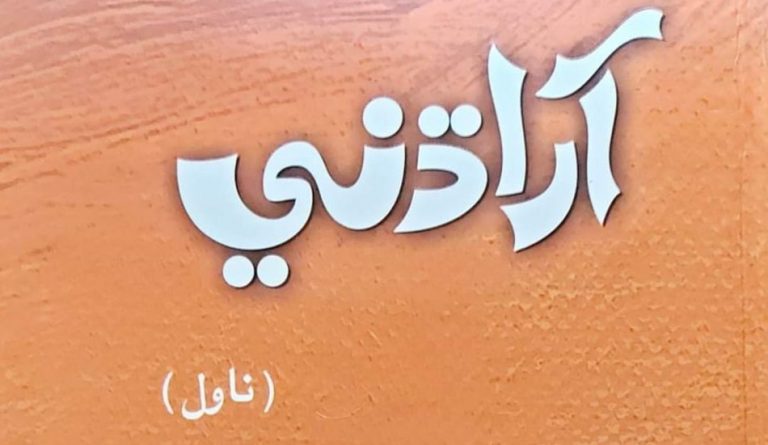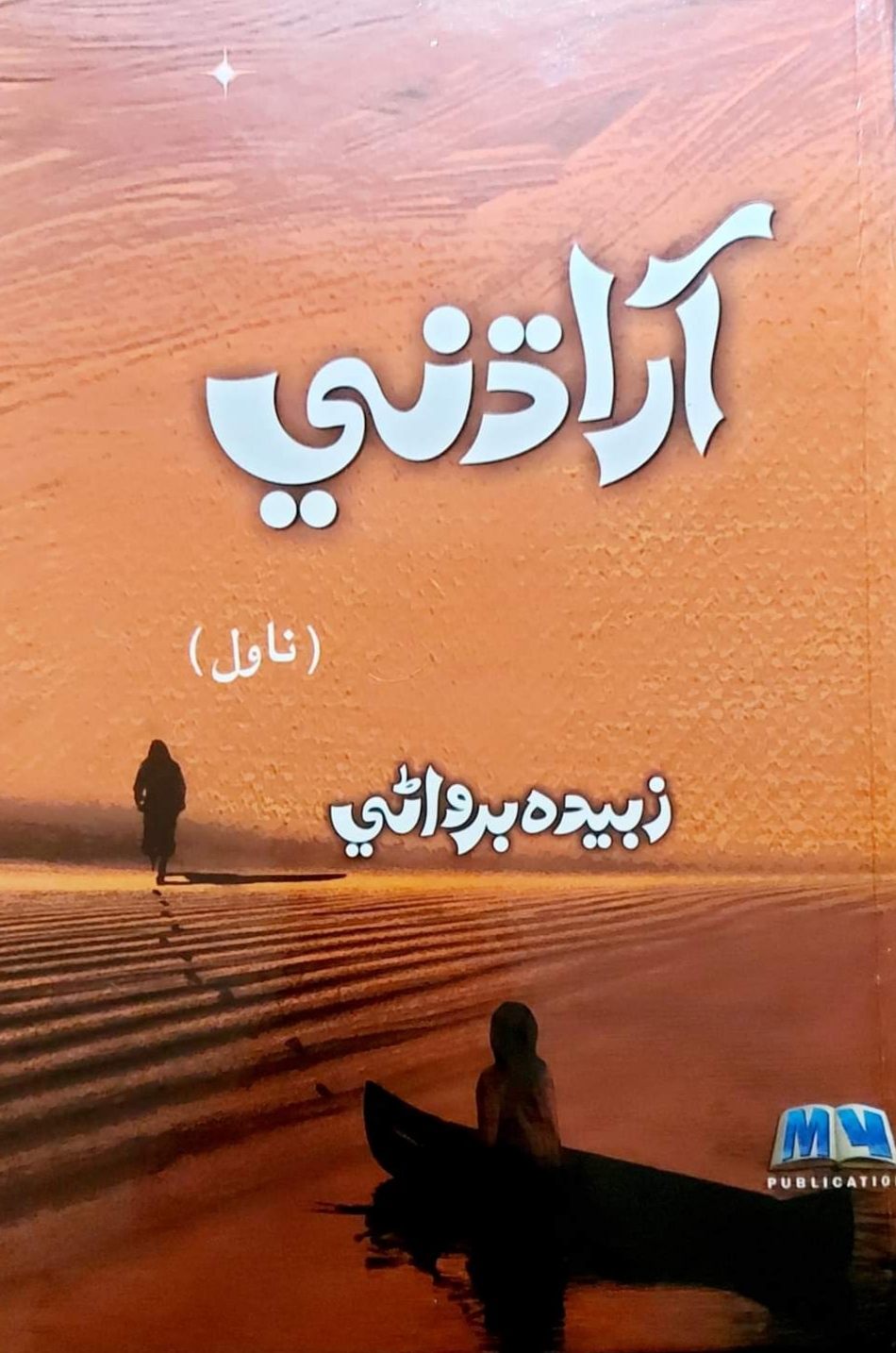
Novel Aaradhni is weaved around the Sufi themes of freedom of expression, intellectual difference of opinion, inter-religious harmony, tolerance, and peacebuilding.
Rafique Wassan
The year 2021 bade a troublesome farewell without discontinuing the Covid-19 global pandemic. The protracted presence of multiple variants in the New Year 2022 this time under the name of Omicron has carried on the unprecedented crisis of Anthropocene. In neighboring Afghanistan, the year 2021 marked the return of ultra-extremist Taliban Islamists which terribly tarnishes the possibility of rethinking progressive Islam. In Pakistan, the year 2021 escorted no trends of progressive transformation that could be cited to introduce the elevated image and identity of society and polity.
My calling of attention that resorts to the idea of elevated image is in the broader sense of political and socioeconomic stability and human security. In the light of this broader spectrum of trends, Pakistan in the year 2021 utterly failed to elevate and uphold the anti-militarization national image that was last evidenced in the horrible episode of violent religious extremism in Sialkot. Over the years, the deep-rooted violent religious mind-set in Pakistan in the form of extra state sectarian religious groups and religious political parties have fueled violence, hatred, and militarization which unfortunately have proved strong dividends to sustain their power gains. As a result, the overriding power, and gains of ultra conservative religious groups in Pakistan often at the cost of weak and appeasing clout of state – without excluding the security establishment – have severely inhibited the socio-politically progressive national security narrative and policy. The state ideology supported conservative religious legislation and indoctrination of schooling practices give further legitimacy to the ultra-conservative social fabric. In this context, socially progressive and political modernist standpoint must be carried forward in the national security policy that speak out and counter the forces of ultra-conservative religiosity. For this to happen, counterculture politics of Sufi heritage seem inevitable starting point to render intellectual appeal and signpost of progressive critical Islam.
 In the year 2021, this intellectual, critical epistemic power of Sufi tradition was rendered creatively in a debut novel Aaradhni in Sindhi language by Zubaida Birwani. Notably, the cultural transfer of Sufi tradition among the Sindhi progressive modernist literary circles – the writers, poets, artists, and academics – is widely acknowledged social fact. The vibrant presence of Sindhi progressive political Sufi narrative produced and enacted by the Sindhi writers heralds a primary touchstone to unsettle the religious militant ideology in Pakistan. In the same vein, Zubaida Birwani in her debut novel Aaradhni weaves around the Sufi themes of freedom of expression, intellectual difference of opinion, inter-religious harmony, tolerance, and peacebuilding. In the history of Islam, Sufi sages over the centuries have played an exuberant role in the production of freethought that continues to challenge the jurist-clerical monopoly over religious knowledge. In Aaradhni, Zubaida Birwani carries forward the Sufi higher consciousness that takes issue with the jural narrowness of the conservative religious demagogues. As a result, contrary to orthodox religious Ulama in the novel she takes inspiration from the historical Sufi characters that call for the creative and alternative ways of knowing and engaging with the religion. In that respect, her chief sources of inspiration in the novel are Mansur Hallaj, Jalaludin Rumi and Shah Abdul Latif Bhitai – the three historic Muslim Sufi characters that represent among the intellectual circles the emblem of love, heterogeneity, and borderless religious identity.
In the year 2021, this intellectual, critical epistemic power of Sufi tradition was rendered creatively in a debut novel Aaradhni in Sindhi language by Zubaida Birwani. Notably, the cultural transfer of Sufi tradition among the Sindhi progressive modernist literary circles – the writers, poets, artists, and academics – is widely acknowledged social fact. The vibrant presence of Sindhi progressive political Sufi narrative produced and enacted by the Sindhi writers heralds a primary touchstone to unsettle the religious militant ideology in Pakistan. In the same vein, Zubaida Birwani in her debut novel Aaradhni weaves around the Sufi themes of freedom of expression, intellectual difference of opinion, inter-religious harmony, tolerance, and peacebuilding. In the history of Islam, Sufi sages over the centuries have played an exuberant role in the production of freethought that continues to challenge the jurist-clerical monopoly over religious knowledge. In Aaradhni, Zubaida Birwani carries forward the Sufi higher consciousness that takes issue with the jural narrowness of the conservative religious demagogues. As a result, contrary to orthodox religious Ulama in the novel she takes inspiration from the historical Sufi characters that call for the creative and alternative ways of knowing and engaging with the religion. In that respect, her chief sources of inspiration in the novel are Mansur Hallaj, Jalaludin Rumi and Shah Abdul Latif Bhitai – the three historic Muslim Sufi characters that represent among the intellectual circles the emblem of love, heterogeneity, and borderless religious identity.
Based in Islamabad, Zubaida Birwani has long worked as an environmentalist for the rights of fisherfolk, coastal and Indus delta communities in Sindh and other regions in Pakistan. Her association and identification with environmental community activism has borne out by her native bond with indigenous coastal communities of Karachi in Sindh. Her coastal heritage identity is deeply merged with the motherly sense of protecting the environment and ecology. In the novel, the portrayal of care and love for the nature and the memory of old heritage buildings, neighborhoods, temples, and mosques in Karachi unsettles the dominant anthropocentric approach as well as helps to conceptualize the Sufi inspired posthumanism. This posthumanist conscience can be seen in devout intimacy with nature and sea declared by Aaradhni the lead character of the novel.
“My upbringing has taken root in the natural environment of sea. Water is the greatest resource bestowed by the nature and human civilization ceases to grow without water. The sea is habitat for life [non-human species]. The sea embraces nature within it and my inner self is like sea that inhabits a universe” (p.84).
In the novel, Aaradhni the female Sufi appears and plays the protagonist role inspired by rebellious Sufi Hallaj. Most significantly, Zubaida Birwani has taken a conscious effort to subvert traditionalist/tradition bound Sufi spiritualism exercised by hereditary Sayed caste or Pir families. Aaradhni, the Sufi lover and seeker protagonist in the novel is not a tradition bound hereditary character and neither a traditional Mureed adept. The center of Sufi message circulation is not a traditional dargah or khanqah monopolized by hereditary families. Conversely, the lecture hall and rooms of the university and Institute for Anthropology and Research established and operated by the Sufi intellectual professors and students are the lead actors and publics in the production and circulation of Sufi freethought irrespective of fixed religious affiliations.
In the novel, the progressive modernist instrumentality of contemporary Sufism may be measured through gender dimension. In that respect, Aaradhni the female Sufi protagonist reveals the voice, representation, and presence of female gender performance in Sufism. Aaradhni is not only the lover of Mansoor Hussain, another lead character of the novel, she is also the defender and protector of his intellectual Sufi movement Hama ust. The conservative religious clerics are at odds with him. Mansoor Hussain’s Sufi intellectual position that encapsulates an alternative and dialogical interpretation of religion and Islam is not tolerated by conservative madrasah minded clerics. In this sense, religious seminary clerics suppressing the Sufi openness and freedom of thought presented in the novel point toward the forces of status quo. At one point, Aaradhni the female protagonist takes charge and come to grips with the conservative cleric. At another point, she seems inevitable to engage and defend the progressive Sufi conceptualization of Islam.
The Sufi’s higher self-consciousness is a powerful intellectual trope that militates against the fixed boundaries of religion. It infuses the Hama ust Sufi cosmic position that perceives the manifestation of God everywhere and for everyone. Zubaida Birwani, the writer of the novel has taken forward the cultural transfer of cosmic Sufi position with devout feelings of care and empathy. Precisely, the central theme of the novel creatively brings out the Sufi Aashiq subjecthood and imaginary filled with the ideas of higher consciousness, sensitivity, and empathy. Sufi Aashiqs embody the rebellious and anti-status quo characters.
[author title=”Rafique Wassan” image=”https://sindhcourier.com/wp-content/uploads/2021/11/Rafique-Wassan-Sindh-Courier.jpg”]Writer is anthropologist and teaches at the Department of Anthropology and Archaeology, University of Sindh, Jamshoro, Pakistan [/author]